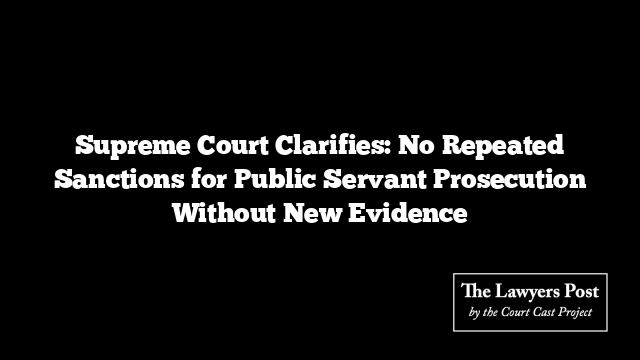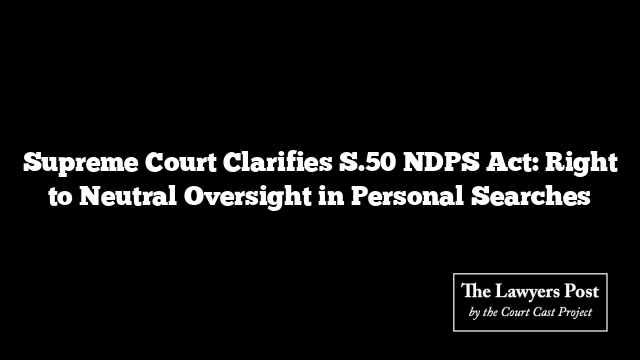In a recent ruling, the Supreme Court underscored that once a request to sanction the prosecution of a public servant under Section 197 of the Code of Criminal Procedure (CrPC) has been denied, the same cannot be revisited based on identical materials. A bench comprising Justices MM Sundresh and Aravind Kumar emphasized that fresh evidence or substantive new grounds must justify any subsequent sanction.
The judgment arose from an appeal by the State of Telangana challenging a High Court order that quashed criminal proceedings against C. Shobha Rani. The respondent faced charges under multiple provisions of the Indian Penal Code (IPC)—such as Sections 420 (cheating), 467 (forgery of valuable security), and 120B (criminal conspiracy)—along with the Prevention of Corruption Act, 1988.
The Contested Sanction
The State argued that the High Court had focused solely on procedural issues surrounding the grant of a subsequent sanction to prosecute the respondent. The initial sanction request had been denied, and the subsequent approval relied on the same evidence, which the High Court deemed impermissible.
The Supreme Court upheld this reasoning, stating:
“A mere change of opinion cannot justify a renewed sanction without new material to support it.”
However, the Court also found merit in the appellant’s contention that the High Court had failed to assess the criminal charges independently of the sanction issue.
Revisiting the Charges
While affirming the invalidity of the renewed sanction, the Supreme Court noted that quashing the charges outright was premature. It highlighted the importance of examining the specific allegations under IPC Sections 420, 467, 468, 471, and 120B, independently of the procedural defect in the sanction.
Consequently, the Court partially allowed the State’s appeal, directing the High Court to re-evaluate the criminal charges on their merits within four months.
A Balance of Principles
This ruling serves as a reminder of the judiciary’s commitment to procedural integrity while ensuring that substantive criminal allegations are not dismissed without due consideration. The decision strikes a balance between safeguarding public servants from unwarranted prosecution and ensuring accountability when credible allegations are at play.





